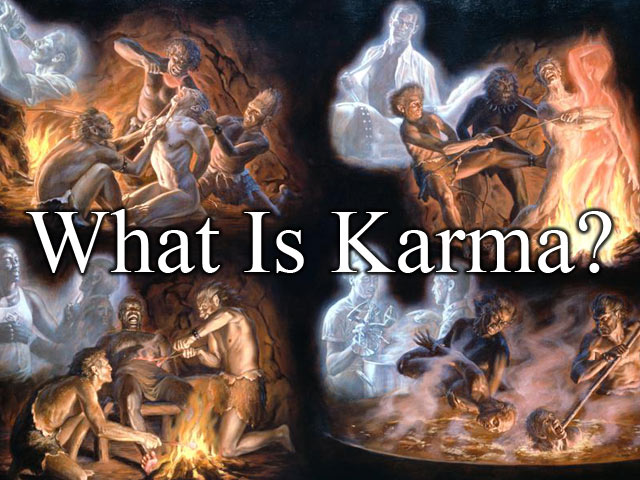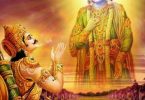Question: My father is now deceased, but was a diagnosed paranoid schizophrenic. He was placed in a mental hospital for years. My brother is also paranoid schizophrenic and is on strong medication. I grew up observing the actions of the mentally ill.
As such I look very carefully at the reasoning given. I am a retired police officer and have come in contact with many people who are mentally ill.
Now to the question, If a mentally ill person believes his delusion and acts according to it (harming or killing), does the mentally ill person acquire karma?
Answer by Romapada Swami: Karma is not an easy topic to understand as it is convoluted and complicated. It spans many lifetimes and even sages cannot fully comprehend them. In any case, every human being, apart from the pure devotees of Lord Krishna, is always creating karma as well as enjoying or suffering his or her past reactions.
First, I will offer a response to your question above which leans in the direction “No, such challenged persons are not held fully responsible for their wrongdoings.”
Karma is only created in the human form of life. But it is said that karma does not act on a child or on grown-up persons with child-like or animal-like intelligence. For example: according to Srimad Bhagavatam Canto 1 Chapter 13 verse 1, Srila Prabhupada describes an interesting story of Manduka Muni who was wrongly sentenced to be impaled for an action he did not commit. The story is narrated as follows.
Once upon a time the state police caught some thieves who had concealed themselves in the hermitage of Manduka Muni. The police constables wrongly arrested all the thieves and Manduka Muni along with them. The King’s court specifically sentenced the muni to death penalty by being pierced with a lance. When he was just about to be pierced, the news reached the king that the condemned man was not a criminal but a great sage. The king at once stopped the death penalty enactment. The king personally begged the muni’s pardon for the mistake of his men.
The saint at once went to Yamaraja, who prescribes the destiny of the living beings. Yamaraja, being questioned by the muni, replied that the muni in his childhood pierced an ant with a sharpened straw, and for that reason he was put into difficulty. According to Mahabharata, the muni explains to Yamaraja that according to scriptures, actions committed by young children should not be considered to be sinful though they may seem so. This is also supported by Madhvacarya.
This is an interesting point to consider. It is said that from the time when a child is born his/her karma is actually taken up by the parents or guardians until the age of fourteen since they are considered incapable of distinguishing good from bad. In any case there are situations where according to scriptures a person may be excused for a sin. In SB 11.21.16, Krishna explains to Uddhava, “Sometimes piety becomes sin, and sometimes what is ordinarily sin becomes piety on the strength of Vedic injunctions. Such special rules in effect eradicate the clear distinction between piety and sin.”
Therefore, we may conclude that when an adult is behaving like a child or an animal due to a challenged condition of embodiment due to his past karma, he does not actually acquire the same full karma as an adult who is normal and has the capacity to know what is right or wrong.
On the other hand, consider the case of a child or baby touching a burning piece of wood. The burning wood is not going to say, ‘Since you are a child I will not burn you!’ Rather, there is a reaction or karma. In this case the reaction is immediate!
Similarly the karma for incapacitated people doing sin unknowingly will be minimal but there is karma.
Generally such individuals are to be taken care by the parents or guardians so that they do no harm themselves or others, unconsciously or unknowingly.
According to Srila Prabhupada, the king or the administrative leader/s of the state or country takes 1/6 of the karma of his/their subjects. This includes both good and bad karma. Similarly the guardians or persons who are meant to protect and take care of such challenged individuals take the majority of the karma and the person committing the sin get a smaller portion of the karma.
Krishna further tells Uddhava, “The same activities that would degrade an elevated person do not cause falldown for those who are already fallen. Indeed, one who is lying on the ground cannot possibly fall further. The material association that is dictated by one’s own nature is considered a good quality.”
For example: Although intimate association with women is most abominable for a renounced sannyasi, the same association is pious for a householder, who by Vedic injunction is authorized to approach his wife at the suitable time for procreation, having performed the prescribed purificatory practices prior to attempting to conceive a child. Similarly, a brahmana who drinks liquor is considered to be committing a most abominable act, whereas a sudra, a low-class man, who can moderate his drinking is considered to be exercising self- controlled. Piety and sin on the material level are thus relative considerations. Piety and sin therefore depend upon particular circumstances and are at times difficult to distinguish.
As you can see, the rules governing karma change according to place and circumstances. Even if one takes the time to study material piety and sin he/she will ultimately experience frustration due to the relativity and variability of the subject matter. Best is to be Krishna conscious and rely upon the Lord to protect us. For people who are mentally challenged, the best course of action anyone can do is to protect them and if they are devotees, they can let such people hear the holy names of Krishna and give them sanctified or blessed food, or prasadam. Doing so will both relieve them of their past karma and present karma – again this depends on the potency of the person giving them either the holy name or prasadam.







